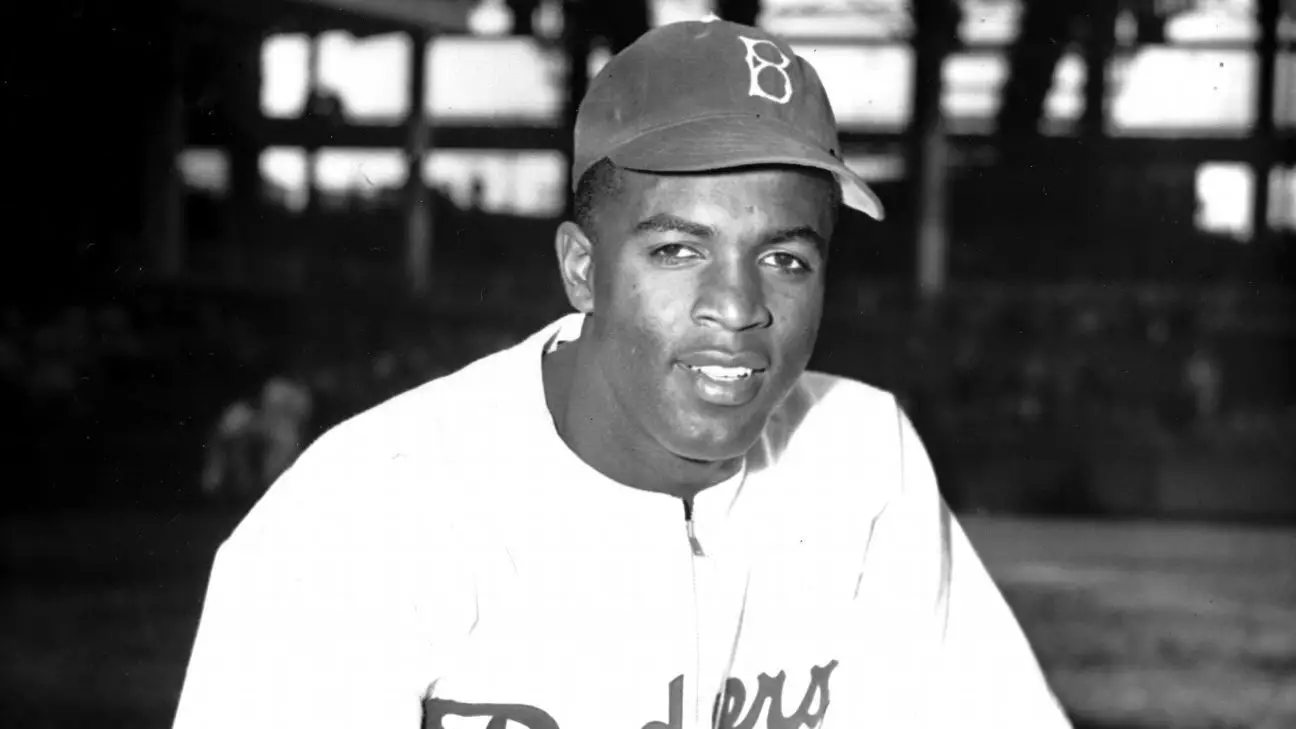Jackie Robinson is predominantly celebrated as a trailblazer in Major League Baseball (MLB), but his legacy extends far beyond the baseball diamond. During World War II, Robinson served as a second lieutenant in the U.S. Army, joining a war effort that challenged the Axis powers and encapsulated the struggle for civil rights back home. While his sports career would make headlines, Robinson’s military service serves as a vital chapter in his life story, highlighting the complexities of race in America during the mid-20th century.
In a recent and controversial incident, an article discussing Robinson’s military service was removed from the Department of Defense (DoD) website, only to be restored due to public outcry. This removal was part of a broader initiative by the Pentagon to “refresh” digital content by eliminating mentions of Diversity, Equity, and Inclusion (DEI). Critics have pointed out that such actions betray a commitment to historical accuracy and a recognition of marginalized voices in a powerful establishment. Robinson’s military service not only merits acknowledgment for its own sake but also for its connection to the racial dynamics that continue to impact America.
A Symbol of Courage Against Institutional Inequity
Robinson is not merely a symbol of integration in sports; he is emblematic of the fight against institutional racism. His refusal to adhere to demeaning orders while in military service is a testament to his character and fortitude. In 1944, he faced court-martial after defying a racially discriminatory command to move to the back of a military bus. Robinson’s acquittal was a landmark event that reflected his commitment to dignity and equality at a time when such principles were routinely sacrificed on the altars of conformity and compliance.
The implications of Robinson’s actions extend into modern conversations about race and equity in the military and beyond. By examining this period in his life, we underscore the intersection of civil rights and military duty—a narrative often lost in the annals of celebrated sports figures. The DoD’s erratic handling of educational content surrounding Robinson only amplifies the necessity for a deeper understanding of his entire legacy.
The Role of Institutions: A Mixed Legacy
The response from the Pentagon regarding the removal of content associated with DEI raises pressing questions about institutional responsibility and historical accountability. Pentagon spokesperson John Ullyot’s assertion that they honor Robinson and other figures like the Navajo Code Talkers and Tuskegee Airmen while disavowing DEI principles demonstrates a troubling disconnect between honoring individual contributions and addressing systemic inequalities still persistent today.
In simplistic terms, the Pentagon’s actions exemplify a superficial recognition of African Americans who served honorably while simultaneously eroding the deeper narratives that contextualize their experiences. The efforts to sanitize historical representations reflect a reluctance to engage with ongoing issues of race, unity, and equity in the military, practice often replicated in various sectors of society.
The Enduring Impact of Jackie Robinson’s Legacy
Robinson’s indelible mark on American culture transcends his on-field achievements. Beyond breaking the color barrier in MLB, he consistently advocated for civil rights, not only during his playing years but also in the decades following his retirement. His iconic number 42, now retired across Major League Baseball, serves as a reminder of both the struggles and successes in the fight against racial injustice.
The anniversary of Robinson’s debut is celebrated annually on April 15, promoting the recognition of both his athletic prowess and his role as a social change agent. As his widow Rachel Robinson continues to honor his memory at celebratory events, her presence reinforces the notion that history is not merely about recounting accomplishments but about understanding the broader societal implications of those achievements.
In examining Jackie Robinson’s complex history, one must confront the dual nature of his experience as soldier and symbol. The recent actions of the DoD, which attempted to downplay the importance of diversity narratives, clash with the reality of what Robinson represents—a test against bigotry, a spirit of defiance, and relentless advocacy for justice. If we are to understand and honor Robinson truly, we must engage with both the struggles he faced in the military and his triumphant legacy in sports and society. Robinson’s life story reminds us of the courageous journey toward equity and the necessity of continuing that fight in every arena, including the armed forces and professional sports.


Leave a Reply